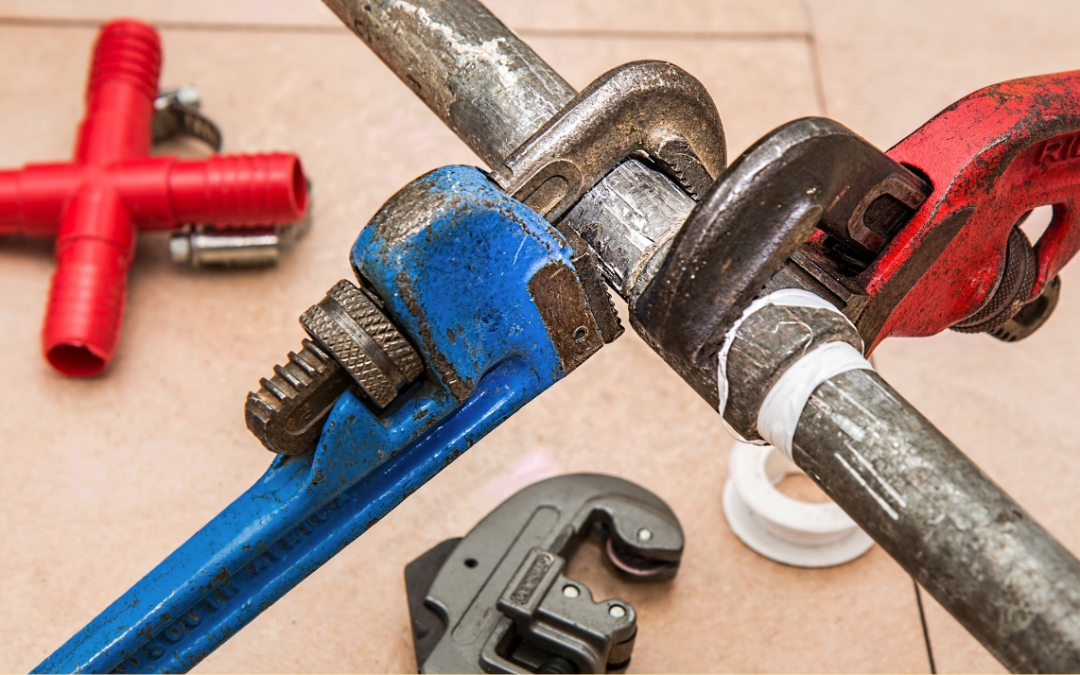Per Plumbing Manufacturers International, nearly 13.7% of the use of water is due to leaks. Do you know if you have any plumbing leaks? When is the last time you checked your water heater? Is your water heater leaking? It may not seem like a water heater leak is a big deal but it is. Any type of leak can cause problems. A water heater leak is no different. What started as a small leak can cause serious damage to your walls, floors, and sub-floors. Besides, a water heater leaking can also be a bigger sign of a larger problem too.
Leaks Call for Home Plumbing Services
You don’t want your property to be damaged. You also don’t want to be out of pocket for huge repair bills due to a water heater leaking too long. Things can get out of hand pretty fast. Before you know it, you could be suffering from a significant flood. This type of leak is also a health concern. Wet and damp areas cause mold and mildew to grow. The EPA has stated that mold spores are actually toxic and can cause serious health problems beyond just an allergic reaction or asthma.
Darn It, Leaks Don’t Go Away on Their Own
A water heater leaking will only get worse the longer it goes unserviced. Once you have noticed even the smallest leak, you need to call a plumber. Do you know whether the leak is from the bottom or the top? Do you know exactly where the leak started? Not all puddles at a water heater’s base are a leak. An unidentified puddle could also be condensation from appliances or pipes near a water heater. It could also be due to water softener discharge lines, furnace drain lines or other types of plumbing. The best way to determine issues concerning leaking is to have an inspection completed. Water heater service offered by professional plumbing companies is the ideal way to handle this situation.
What’s the First Thing to Do for Water Heater Leaking?
When you are 100% sure that you are dealing with a leak, turn off the power supply. Electricity and water make for a dangerous pairing. If you own a natural gas water heater, locate the dial or switch on the tank, it may be near the bottom. Make sure to switch it off. Try to avoid closing the shut-off valve for the gas. For an electric water heater, you will need to find your circuit breaker and switch off the breaker for the water heater.
Be careful! Most heaters are set to heat water to extremely hot temperatures such as 125 degrees Fahrenheit. Water that hot can inflict burns of a first-degree nature when it comes in contact with skin. When a water heater is turned up to the maximum temperature, anywhere between 160 – 190 degrees Fahrenheit, even more, serious injuries are possible if you come in just indirect contact with the water. Take the necessary precautions and avoid contact with the water at all costs.
Next Turn Off Your Water Supply
The best way to stop a water heater leaking is to turn off your water supply. Locate the cold water shut-off valve and turn the water off. Valves are sometimes located above the water heater itself. You are looking for either a gate or pull-down valve. The gate valve basically looks like a dial and has to be turned clockwise to close the said valve. If you can’t reach the valve safely, do not put yourself in peril to try to shut the water off. In this case, turn off the water to your home using the main shut-off valve.
Get a Quote for Services from a Local Plumber
Should you replace or repair your water heater? It depends on the leak. A professional plumber can answer that question. They are prepared and trained to deal with any type of issues that could come up. Check with them, to learn more.


Recent Comments